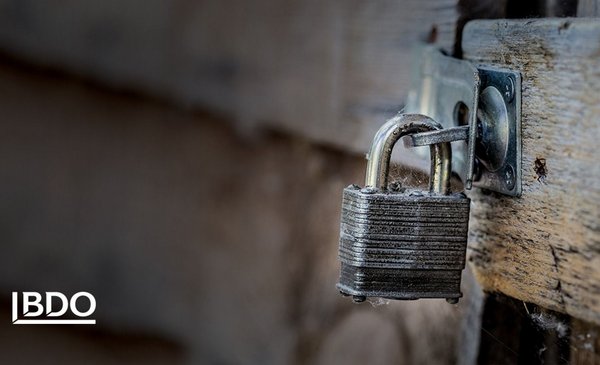BDO in Uruguay – Cra. María Florencia Fernández Trías – Senior Outsourcing Department
As of the tax reform of 2007, for an expense to be deductible in the IRAE, 4 conditions must be met. It must be accrued in the year, be necessary to obtain and keep the income, be duly documented and must comply with the highly controversial rule of the counterparty, from now on the “Padlock Rule”.
The “Padlock Rule” is based on the premise that when analyzing the deductibility of the expense when determining the IRAE, it must be considered what the counterparty with which the expense was incurred is taxed. Based on the taxation of the counterparty, the expense can be deducted at 100% or a lower percentage thereof, which arises from the ratio between the rate paid by the counterparty (numerator) and the IRAE rate of 25% ( denominator).
In this way, in cases where an IRAE taxpayer contracts an expense with another IRAE taxpayer, the expense is 100% deductible. The same thing happens, by way of exception to the rule, when expenses are contracted with IRPF category 2 taxpayers, both for independent and dependent personnel, in which 100% of the expense is allowed to be deducted. Although in the latter case, it is necessary that the contributions corresponding to the BPS and IRPF be made as well as that the services be effectively provided.
The serious damage generated by this “Lock Rule” is observed in regard to expenses contracted with IRPF taxpayers for capital income, category 1 and in certain circumstances with IRNR taxpayers.
In the case of personal income tax for category 1 capital income, when calculating the ratio between the maximum personal income tax rate (12%) and the IRAE rate (25%), the coefficient determines that it is only possible to deduct 48% of the actual expense. incurred.
In the case of the IRNR, when determining the expense deduction quotient, the effective income tax rate in the other country is added to the maximum rate of the IRNR (12%) in the numerator. Consequently, the expense deduction percentage will also be reduced in all those cases in which the effective tax rate abroad is less than 13%.
This situation is further aggravated when, as of 2008, it was established that the “Lock Rule” applies not only to the deduction of expenses, but also to the deduction of costs.
Our opinion
We consider the “Padlock Rule” to be a clearly inconvenient rule that needs to be removed. It is harmful because it seriously affects taxpayers, generating unfair additional fiscal costs and that in many cases, due to their amount, can be considered confiscatory, distorting economic activity. It is a norm that in its fiscal zeal determines that certain IRAE taxpayers bear the tax burden of taxpayers of other taxes (IRPF or IRNR) or in fact that they pay the tax that these other taxpayers should not pay for justifiably paying lower rates. The existence of different rates in the different taxes is due to reasons based on the very nature of the tax and the tax technique and it is neither natural nor healthy for these rates to be modified by this rule, equaling them, and therefore IRAE taxpayers must pay a higher tax for the lower rate that others justifiably pay.
There are multiple examples of the damages generated by this rule, but perhaps the most notorious, due to the amounts involved, refer to the deduction of the cost of sales of a property acquired from an IRPF or IRNR taxpayer or to the deduction of rent when the counterpart pays the aforementioned taxes. Not being able to deduct 52% of the cost of a property or rent is decidedly confiscatory. This circumstance distorts economic activity and the functioning of the markets, since it encourages IRAE taxpayers not to contract as much as possible with those who are not taxpayers of said tax or to try to pay less for the same good or service depending on who owns it, a circumstance that weakens the position of the IRPF or IRNR taxpayer.
In times when there is talk of adjusting the tax system by eliminating distortions and inequities, it is necessary to review this rule, which has already forced the establishment of numerous exceptions.

















